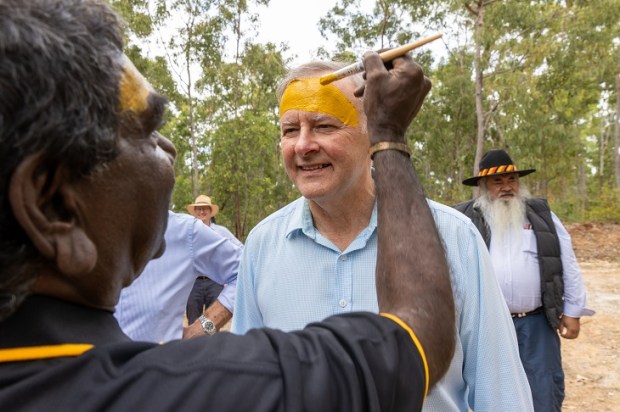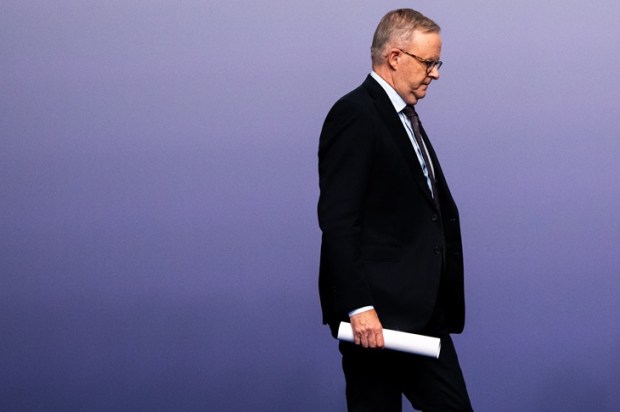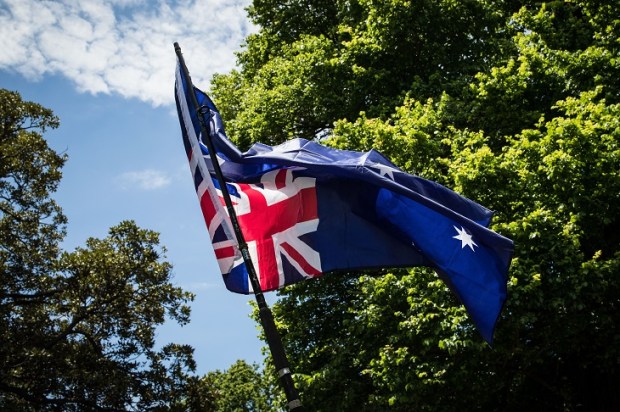The Shaky Isles have a new government. At last. Christopher Luxon, with whom I spent a pleasurable day in Hawke’s Bay some years back when he ran Air New Zealand, is the new Prime Minister. Jacinda is merely a grisly memory. As is her successor, Chris ‘people made their own choices about Covid vaccines’ Hipkins.
There are two (alternating) deputy Prime Ministers, one a libertarian (David Seymour) and the other a complicated populist (Winston Peters), if you can believe that. Well, Argentina has a new leader too, a populist libertarian!
There is a bit of a right-of-centre/outsider revival going on abroad, what with Marine le Pen, Viktor Orban, Georgia Meloni, and (now) Geert Wilders all in power or surging in opposition.
Even Trump is ahead in the polls stateside and Robert F Kennedy Jr is causing serious grief for the legacy parties of the establishment. As Teresa Pinto notes:
Recent political events in Europe confirm the growth and consolidation of conservative right-wing parties, a trend that started in 2015 in Poland and has been steadily growing since then. Only five of the 27 European Union member states are now under socialist-led governments: Portugal, Slovenia, Malta, Denmark, and Germany.
Over the past year, the radical right, conservative and centre-right parties have won elections or joined government coalitions in Italy, Finland, Greece, and Sweden.
In the Netherlands, the BoerBurgerBeweging (BBB), Farmer-Citizen Movement, founded in 2019, is leading the polls. The stellar rise of the BBB, which fights against the closure or mandatory state appropriation of livestock farms, exposes some of the critical political cleavages driving the conservative and populist momentum.
In Germany, the far-right Alternative for Germany (AfD) has overtaken the ruling Social Democrats in the polls. And while 2027 is still far off, Marine le Pen, leader of the French right-wing opposition, is positioned to win the presidential elections.
And maybe it is happening here in Australia, too.
Airbus Albo is politically a dead man walking. Dutton has a realistic shot at the next election. The Premier in Brisbane is reaching new heights of unpopularity (and her frequent flyer points almost match those of the Prime Minister). There are signs Victorians might be tiring of their totalitarian, leftist leadership. The Rum Corps State and South Australia have Labor governments sitting well to the right of their Liberal predecessors. And as for the West, they have lost their Covid lockdown enthusiast.
Mind you, Paul Keating was wrong. If you change the government these days, you are by no means guaranteed of having changed the country. The re-colonisation of our liberal democracy will be a generation-long task, embarked upon without even the slightest certainty it will come off. Parties of ‘left’ and ‘right’ come and go, but somehow we have the State and society creeping inexorably leftwards. Celebrations of pendulum swings are almost always premature and unwarranted. And yet, one hopes.
Perhaps there are lessons from across the Ditch.
One of the first acts of the new composite government finalised this past week has been to promise a full-on Covid commission of inquiry, to end any remaining vaccine mandates, and to question the proposed World Health Organisation Pandemic Treaty. Winston Peters was on the side of the Covid angels before the election, and let us hope, still is.
Just as John Howard’s greatest achievement might well have been getting rid of Keating, the new Kiwi government might not have to do much more than simply not be Labour. No, we have higher hopes than that. One of the hopes is that Winston Peters, who has been around since Moses was a boy, at or near the apex of government, might put a bit of stick about. Much written off, the old warhorse is back for more.
How have the Kiwis pulled off what we seem incapable of? That is, the election of a hybrid right-of-centre government with two hovering ‘keep the bastards honest’ types holding the timid centrists (the Nationals) in check. All we ever get are rich, climate change ambassadors (aka the Teals) and/or rabid greenies.
The New Zealand result has been made possible by three things.
First, they had a government so bad that something radical had to be done about them. Leading up to the election, Labour had been filed under ‘D’ for the dustbin of history. Ardern knew the writing was on the wall well before election day. Her successor was always on a hiding to nothing, but he somehow made things worse. New Zealand Labour attempted, and largely succeeded, in turning their country into a race-based system co-run by radical activists. Then they tried to Covid-zero their way to the economic Stone Age, with lock-up policies on a par with those of Daniel Andrews, minus the rubber bullets. They cosied up to China. They pretended that they could change the climate. They out-Woked the Wokest in the world. (Wait a minute, isn’t that what Australia is doing, precisely?) The Kiwis had a government up there with Whitlam. It simply had to go.
Second, New Zealand has this weird, and mostly bad, electoral system copied from the Germans in the 1990s. The MMP (mixed member proportional) system gives voters two cracks at representation, one with traditional electorates and the other with ‘list’ candidates elected to reflect national tallies by the parties.
Mostly, this system has the likelihood of delivering unstable coalitions in power and policies for which no one voted. You see, once the election is ‘decided’, you then get a month or two of ‘negotiations’ in which the major party hoping to get the baubles of office agrees to give up some of its policies – the policies on which it was elected – and add a whole bunch of policies on which it was not elected. And this is called ‘democracy’.
Despite all this, the system may just deliver a good outcome for the country.
Third, the Kiwis have a populist party with a leader of national standing and clear policies developed over decades. We do not. We have a bunch of micro freedom parties competing with one another and a total lack of cut-through and profile. The majors only ever get two-thirds of the primary vote now. But they survive, only ever by the skin of their teeth and without anything like a mandate for the radical changes they routinely visit upon us. But they survive. We kick out a government that locked us all up for no good reason and hosed a trillion dollars of money they didn’t have up against the wall, only to get a replacement government that wished the previous lot had tried even harder to screw us during Covid, and that has found new ways to screw us over even worse than its predecessors.
And we have an electoral system that, in the House of Representatives, massively favours the two branches of the UniParty. In a few inner-city seats, where hard-left green radicals congregate in numbers, you get a leftist candidate that can enough preference votes to defeat Labor. You decidedly do not get a Winston Peters or a David Seymour (the New Zealand Act Party leader). Those of us who might want to start an Outsiders Party have a snowball’s chance in hell of getting members elected, what with our geographic spread across the suburbs and regions. The only potential outsider party here, the Nationals, are Woke on most issues – decidedly not the Voice, to their credit – and are minded only to get goodies for the bush. Those of us in the regions are, indeed, outsiders, but the Nationals are one-dimensional on outsiderism.
The new collaboration in New Zealand may work. And by ‘work’, I mean make a real difference and actually undo some of the demonic work of the other side, not just hang together for a term or two and occupy the Treasury benches with little effect. Can a libertarian/populist combo work?
The model might be Argentina’s Javier Milei.
Geoff Shullenberger argues:
Milei has been called ‘Trump of the Pampas,’ and the 45th US president seemed to confirm their equivalence with a congratulatory post predicting Argentina’s president-elect will ‘Make Argentina Great Again!’ But beyond an idiosyncratic coiffure and a flamboyant disregard for political niceties, these two nominal ‘populists’ appear diametrically at odds on a range of matters of policy. What originally set Trump’s MAGA agenda apart was the candidate’s repudiation of the small-government consensus that had dominated the Republican Party since Ronald Reagan. Milei’s Southern-Hemisphere MAGA, in contrast, is Reaganism on steroids: The chainsaw he has campaigned with symbolizes his promise to cut government down to size.
Not so fast.
Libertarians and populists both hate corrupt big governments. Post-Covid outsiders have anarchist genes, as do libertarians. Just look at Albert Jay Nock, libertarian godfather and author of Our Enemy the State. They both hate crony capitalism. Libertarians have all read their public choice theory. Populists now intuit it. We know how the system works, with governments captured by client corporates and now working in cahoots with them to effect policies that defenestrate the people. Large corporates are about as far from Hayek and the Austrian economics school as you can get. The Covid State and its successor surveillance state, with all the tech-tools and trappings of totalitarian control, cut to the very core of the beliefs of both real liberals and outsiders.
The key to hoping in the prospects of the unconventional marriage is to recognise that big, overreaching States with a will to control more and more of our lives and in bed with crooked corporates are a giant political target around which anarcho-liberty types, outsiders and cranky centrists might all happily congregate and conspire.
This could work. It might be the hope of the side. And if it does work, we in the land of Oz should observe and ponder.
Winston’s moment.

























